World War I could have been avoided ... possibly. These are the five key moments that finally committed us to conflict
ONE hundred years ago today Britain declared war on Germany, dragging Australia into WW1. These are five key moments that committed us to horror.
ANZAC Centenary
Don't miss out on the headlines from ANZAC Centenary. Followed categories will be added to My News.
IT could have been avoided. On this day in 1914, Great Britain reluctantly declared war on Germany. It was the moment Australia was instantly dragged in to World War I, the so-called “War to End All Wars”.
World War I was a conflict in which the world saw a staggering 37 million military and civilian casualties, including approximately 60,000 Australian dead and more than 150,000 wounded. There had never been a war like it. It was the first major war of the industrial age, the first war to include tanks, machine guns, trench warfare, gas and many other horrors which were previously unknown on the battlefields of the world.
And of course, it was the war fought on the biggest stage of all time. No previous war had ever spanned continents and hemispheres.
This was also one of the few wars to be fought for no clear reason other than power itself. Most wars are fought over land grabs or irreconcilable differences between nations, be they religious, political or economic. World War I was an exception. It was a conflict sparked by the great powers of Europe, many of them in decline. It was a flexing of muscles with dire consequences.
Professor Peter Stanley from the University of New South Wales, Canberra was a senior historian at the Australian War Memorial for 27 years. He says Britain was morally obliged to enter the war after Germany marched on Belgium, but Britain was not to blame for the outbreak of war.
According to Professor Stanley, the outbreak of war was essentially due to the incompetence of eastern Europe’s leaders.
“In many ways, for the last time in history, events were being run by a small group of crowned heads in the empires of Central Eastern Europe,” Professor Stanley explains.
“England and France had politicians, but the leaders of Austria-Hungary (Emperor Franz Joseph), Germany (Kaiser Wilhelm) and Russia (Tsar Nicholas) Germany had crowned heads who were unskilled and inexpert.
“A lot of people at the time did predict that an industrial war would be worse than anything there had ever been, but none of the men who actually make decisions in relation to war seem to have understood that. They seem to have acted as though the Napoleonic Wars were still on, as if machine guns and aircraft and artillery didn’t exist. They don’t seem to have grasped it.”
THESE ARE THE FIVE KEY MOMENTS THAT LED TO WAR
ULTIMATUM: 28 July, 1914 — Austria-Hungary declares war on Serbia
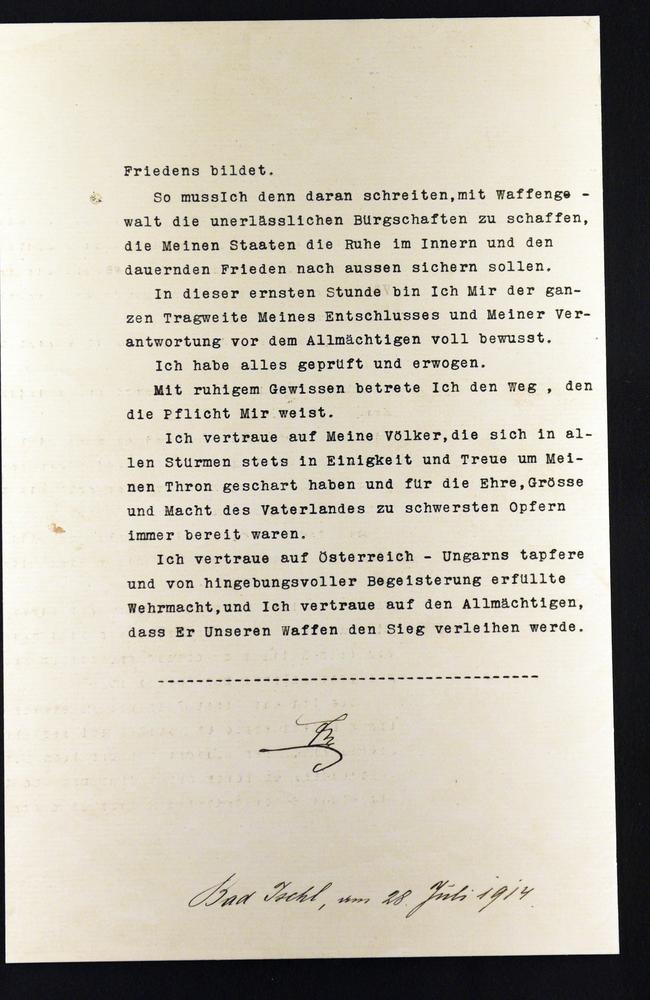
This is the date that the Empire of Austria-Hungary declared war on Serbia. Hostilities had started a month earlier when Gavrilo Princip, one of a band of pro-Serbian nationalists, assassinated Archduke Franz Ferdinand, heir to the throne of Austria-Hungary.
Austria-Hungary issued Serbia with a 10-point ultimatum after that and Serbia agreed to eight of the 10 points on the list. Austria-Hungary wasn’t satisfied and declared war.
ANGRY GIANT AWAKES: 31 July, 1914 — Russia mobilises its army
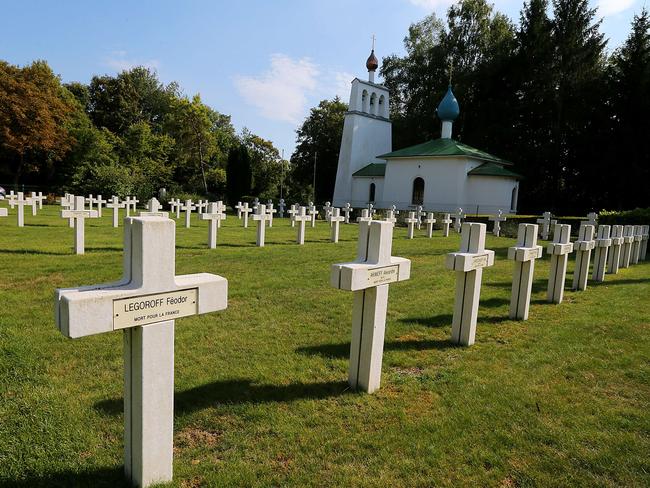
Russia was bound by a treaty to Serbia and announced a mobilisation of its army in its defence.
“The counter response was the single most decisive disastrous step in the whole sorry month,” Professor Stanley explains.
“It literally means millions of reservists make for their depots, a huge conscript army that absorbs reservists like a big sponge and pushes those units to places they’re supposed to go when war breaks out. It means they pulled out thousands of rifles, millions of pairs of boots, kitchen equipment to cook the food, communications equipment, basically everything an army needs. The Russians were so backwards compared to Western Europe, they had to mobilise sooner, and once they start mobilising, it triggers the German mobilisation because the German emperor will support the Austria-Hungary emperor come what may.”
WAR BECOMES INEVITABLE? 1 August, 1914. Germany declares war on Russia
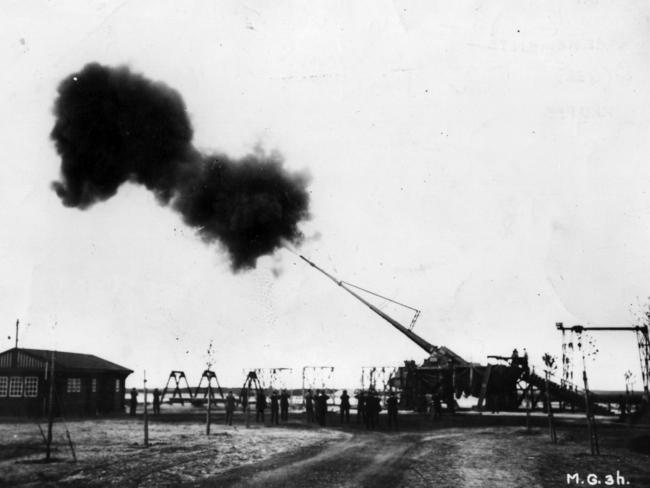
Germany was an ally of Austria-Hungary, which meant it regarded the Russian mobilisation as an act of war. Despite this clear historical fact, Professor Stanley still believes there could have been room for less hot-headed leaders on both sides to back down from the situation.
“If Germany and Russia had kept their cool and not egged on their clients or given them blank cheques, war could have been avoided at that moment.”
That said, Professor Stanley believes war probably inevitable at some time given the behaviour of the leaders.
NOW FRANCE IS DRAWN IN: 3 August, 1914 — Germany invades Belgium
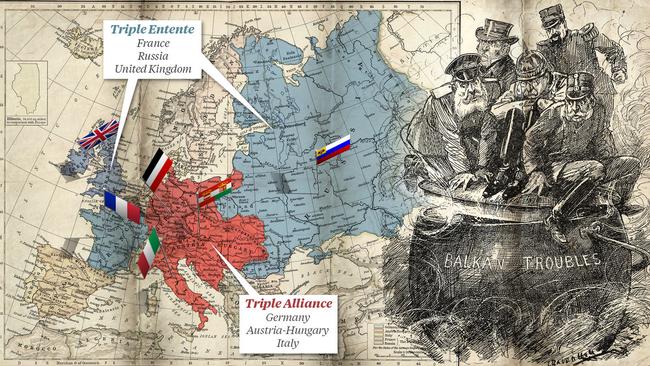
On this date, Germany also declared war on France, which was an ally of Russia. Professor Stanley says the French had no ambitions to go to war with Germany, but having “gotten themselves into bed with autocratic Russia”, and with the German army encroaching, they had little choice.
To get to France, Germany marched across Belgium. This was an act of belligerence because Belgium was neutral. But as Professor Stanley explains: “If you wanted to capture Paris, you had to invade Belgium.”
BRITAIN’S OBLIGATION: 4 August, 1914. Britain declares war on Germany
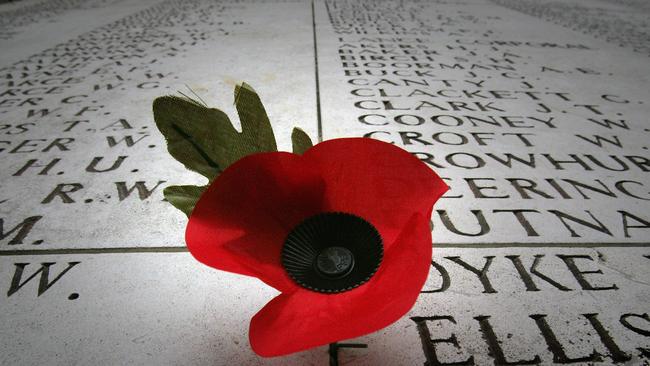
Could a full-scale global conflict have been avoided if Britain had chosen not to act in response to events on the European continent? Possibly. But Britain was obligated by treaty to defend Belgium’s neutrality. The British cabinet was divided over the course of action in regards to Belgium, but the prevailing view in Britain was that Germany could not be allowed to dominate Europe.
“Britain had been watching this crisis develop throughout July and had tried to exercise moderation and restraint and tell the belligerent nations to cool it,” Professor Stanley explains.
“Eventually Britain sent a telegram to Germany stating that if the Germans didn’t issue an order for withdrawal [from Belgium] by 11pm, a state of war will exist between our two countries.”
Australia pledged its support to Britain immediately. Sadly, we all know what happened thereafter.
Lest we forget.
Originally published as World War I could have been avoided ... possibly. These are the five key moments that finally committed us to conflict


